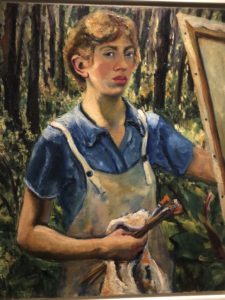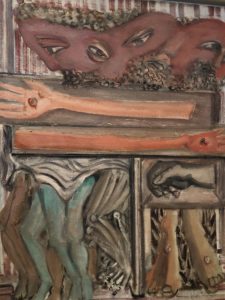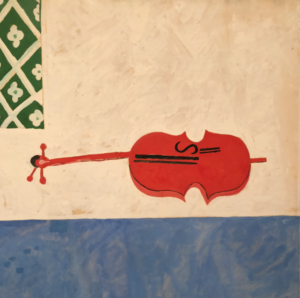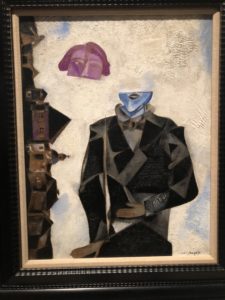Daylights Saving Time today. Most view it as an extra hour of sleep. I view it as an extra hour of night.
In my head it’s a rhythm, a mantra, a sick, squalid croon. It’s why the Legend and I have fallen into old habits–him coming around only when it suits him, never ushering me into his world. Me swallowing whatever crumbs he offers, blowing up badly when they become indigestible.
Fall back, fall back.
The light is more beautiful, also more precious. There’s so little of it, you see.
Yesterday I met with my eldest goddaughter on the Upper East Side. Both of us live in Brooklyn but make formal friendship dates while getting acquainted as adults. She is in her early 30s and I am in my late 40s, high time we learned to appreciate each other as peers. We met when I was a recent college graduate and she an elementary schooler, so our relationship has undergone serious growing pains over the years. Me relying too heavily on her preternaturally adult wisdom, doing her the same disservice done to me decades before.
I love her. Not just because she’s smart and kind, wry and laugh-out-loudish, but because I knew her as a bright-eyed, sour-mouthed little thing. You meet these people when they’re small and sometimes it’s obvious that all you’re supposed to do is guide and honor them. That they’ve already got all the equipment they’re going to need, your only job is to make them feel safe and seen.
Not that I always did my job well.
Imagine what I would have been like as an actual mother.
I’m PMSing today so am feeling the slap and tickle that is premenstrual syndrome in your 48th year. Now that the period on my period is looming large, I feel a ruefulness alongside my rage.
The women on the Jewish side of my family are fertile well into their fifth decade–at 41, I got pregnant by mistake—but now my childbearing years are pretty much over. I made the decision to live child-free a long time ago but there’s still something about a door definitively slamming in your face. There’s relief, also grief.
Fall back, fall back.
My goddaughter and I met up at the Jewish Museum. Semi-Semitic by heritage and soundly Semitic in our temperaments, we rolled through the galleries, talking fluently but with an excessive courtesy. Friendship-dating, don’t you know.
As we walked and talked, I watched her closely. She is a very elegant 30something, clad in well-tailored black layers, a tartan added as a smart twist. Her eyeliner was applied with an aplomb I never acquired (even when fucking men I’m more of a lipstick lesbian), and she was processing the pleasures and tensions of the exhibitions with an alacrity I remembered. I felt amused and admiring.
Afterward I cajoled her into escorting me to Housing Works–I’m obsessed with the second-hand dowager chic of the East 80s–and we tried on hats, scarves, voices. At one point I balanced my purse between my knees as I put on a voluminous fur (incorrigible, yes) and she wordlessly slipped it over her shoulder. The fluency was intoxicating.
It returned in full force as we faced each other over big bowls of mediocre ramen. We talked of my book and her work, of semitism and semantics, of love and children. First as we talked, the room slipped away but not my pretenses. This was not for her benefit so much as my own. I was pretending I was confident I’d sell my book, that I could handle the decline of my affair. She had some sore spots of her own. We both, maybe, were pretending not to be saddened by how cold and dark it had gotten outside. Then we took off more veils, and began telling bigger truths.
Fall back, fall back.
We fell so deeply into our old-soul kinship that we forgot we could part—-that she could head straight away to her warm beau in their warm apartment, that I could cruise right over the Queensborough bridge back to my new-old loneliness.
It was lucky, too, because a minute later I couldn’t find my car. Usually I make a note of exact parking locations, but I’d been so distracted giving her the Cosmo Girl version of my crumbling heart that I’d lost all sense of space and time. For all I knew, my car had been parked on Mars, though definitely not Venus. (Lord this retrograde will never end.) I began to hyperventilate, and she to walk me through everything: in which direction we’d been driving, which six-block radius we should comb, what steps we’d take if my car had been stolen or towed.
I was trying not to cry. Actually, I was too disembodied to cry. I was trying not to dissociate completely.
Fall back, fall back.
My friend T and I have been talking about this phenomenon a lot lately. She and I saw each other through the tail end of our adolescences and then aborted our alliance with the abruptness of two very broken people. Only as we’ve been mending ourselves with the tenderness of middle-age have we managed to mend our friendship as well. It’s been a mitzvah.
So we’ve been talking about how, as people who once tried to escape our bodies through eating disorders, we now abandon the physical world when emotionally distressed. Speaking for myself, I get disoriented. I lose things. I break things. And while it is true my witchy frequencies are partly to blame, I also check out on the physical world because I check out on my true self.
Not for the first time–not for the twentieth time– did my eldest goddaughter have to godmother me, administering the soothing reason that is all that calms me when I am sad or scared. I felt doubly anxious–devastated that she was once again having to play that role, devastated that I may have lost my favorite possession next to my home.
For I so love my car. It is my freedom, my agency. What stands between me and that feeling I carried all through my youth: dependent on others, helpless and stuck.
We walked miles and miles, looking looking. Finally on the last block it could possibly be, a horn blithely answered my keychain’s beep, and I burst into horrible, hacking sobs.
I cried because I was so broke I didn’t know what I would have done had my car been stolen.
I cried because I was breaking the rest of myself pretending my heart wasn’t broken.
I cried because I was behaving like an addict–on the wagon, off the wagon, but never really sober when it came to charismatic, unavailable lovers.
I cried because I’d made my goddaughter care-take me yet again.
I cried because I feared youth’s last bit of brightness had disappeared into the sunset of this fading romance.
I cried because I feared the darkness was never going to end.
Eventually, I turned on the ignition and my patient goddaughter and I made our way downtown, me unconsciously taking the worst possible route for us both. She forgave me for this and refused to accept my apologies for everything else.
This is chosen family, she said. You don’t need to be perfect to be loved.
I cried some more, but it was a much better cry.
The rest of the night was very long. Halfway through, I woke, throat tight, phone unmessaged, and I prayed for sweet release and communion sweeter still. I prayed to finish my book and successfully shepherd it to others. I prayed for the people I love to feel safe and seen. I prayed for friendships lost and found, and love found and lost. I prayed for permakitten sleeping on my feet, and for the Legend to hear my prayer. 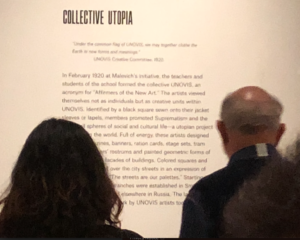
The moon aglow in my window, I finally fell back asleep.
When I woke, the darkness was gone. I’d known it would be. But I hadn’t really believed.
All images taken in the galleries of the Jewish Museum.

